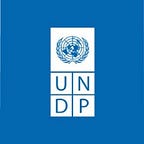A rural family in north-west Azerbaijan turn their fortunes around with a new cheese on the block
The majority of households in north-west Azerbaijan live in rural and often remote mountainous areas with limited opportunities for employment. The diverse population of the six north-western regions that comprise the Sheki-Zaqatala Economic Zone also includes many vulnerable families displaced by conflict.
Like many households in this region, the Miralamov family have kept cows for as long as they can remember.
“Around here cows were as important as computers are for my grandchildren today!” says Khalifa Miralamov, now the oldest member of the family at 72 years old.
“We never had many, though, because in our family, we were always making our own bread and cheese, using recipes and techniques handed down over generations. Not just any cheese, mind you — the best cheese in the region!”
The Miralamov family always had an entrepreneurial mindset. But with the family growing, the younger members have had to find different sources of income. The prospects of their staying together increasingly difficult economic circumstances were not looking good until, as Khalifa says, “opportunity suddenly knocked on our door”.
The opportunity was a new European Union funded project, set up in the region by UNDP and ABAD offering training to help set up and expand small rural family businesses.
The training involves a series of sessions in which experts and mentors provide the participants with input and guidance on how to identify a viable business idea and develop a comprehensive business plan and marketing strategy, including effective use of packaging and online selling.
Those who successfully complete the training and have their business plan approved by the tutors are then eligible to apply for a grant to purchase necessary equipment or other items they need to set up their new business.
The Miralamov’s household is one of 44 rural families in the north-west region whose lives have already been transformed by the project.
“The first thing it gave us as a family was new confidence that we could really do this — I mean, run our own family business and even make a success of it so we can stick together — maybe even employ other people,” says Khalifa’s son Elmir. “My father is a changed man these days! Now we work together and things are looking up for all of us.”
Elmir says the secret to their new business lies in the novelty and quality of their main product: “We built our business plan around becoming the first in the region to produce Dutch-style cheese. The course really focussed our minds on the possibilities and we’re already expanding. Lots of the things we learnt are still only just starting to make sense — the marketing and the packaging and how to target bigger buyers.”
With the specialised equipment they purchased with the grant from the project, the Miralamovs are now making high-quality Dutch Edam cheese.
“We’ve had to order extra milk from neighbouring villages and we’re looking to buy more cows soon,” says Elmir, “We’ve already employed two women from the village and the idea is to set up a proper dairy farm and expand into other products like organic butter.”
As the first producers of this type of cheese in the Balakan region, they have used their new business skills to generate demand not just from local shops but also from national supermarkets.
Next month they will deliver their first order of 100 kg of the cheese to the large ABAD distribution network that supplies supermarkets, hypermarkets and duty-free shops throughout Azerbaijan. Soon their delicious cheese will be available for tasting in Bravo supermarkets across the country.
With the outbreak of Covid-19, the project helped the Miralamovs and other families adapt to the new situation by organizing a series of safety training sessions, turning to online tools to ensure the continuity of business procedures and organizing info sessions to help small business cope with the impacts of the pandemic.
